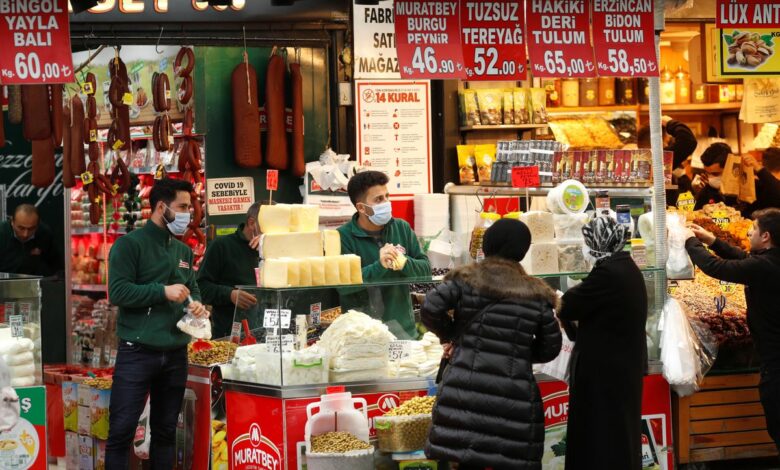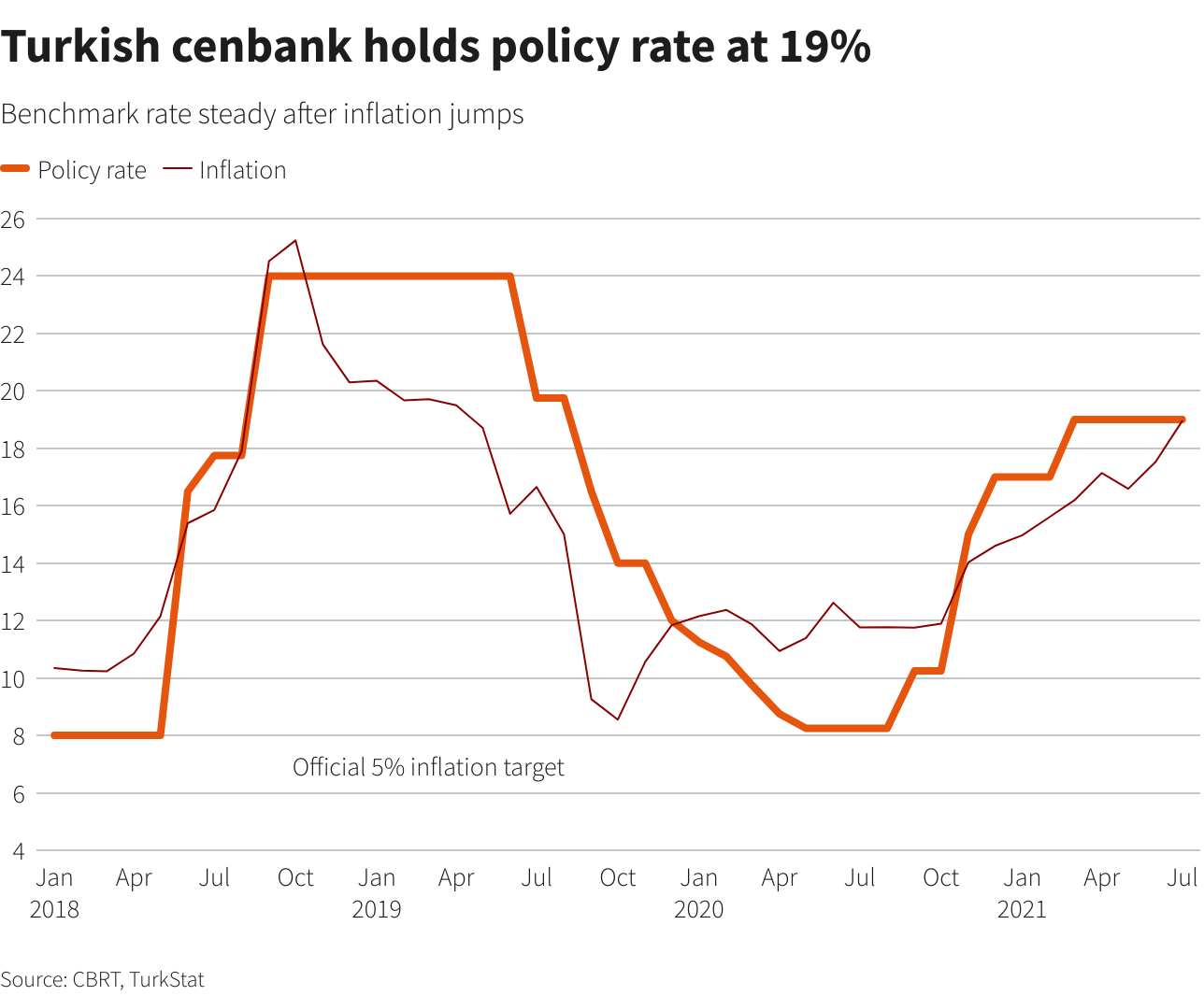
ANKARA, Aug 31 (Reuters) – Turkey’s economy is bouncing back from a pandemic-induced slump with close to 10 percent growth expected this year as manufacturing and consumption soar, but the boom is feeding into – and in turn being eroded by – double-digit inflation.
Analysts have ratcheted up expectations for both economic indicators, meaning President Tayyip Erdogan will probably have to wait longer for the interest-rate cuts he has publicly suggested should happen in September.
On Wednesday, data is forecast to show the economy grew 21.7 percent annually in the second quarter, teeing up GDP growth of eight percent or more for 2021, according to a Reuters poll.
On Friday, August’s inflation reading is expected to stay close to the 18.95 percent logged in July, driven by consumer demand, lira depreciation that has raised import costs, and a worldwide rise in commodities prices that have left Turkey with some of the sharpest price rises globally.
Food, electricity and natural gas price pressures are mounting as economic activity rebounds to pre-pandemic levels, said William Jackson, chief emerging markets economist at Capital Economics.
“We think inflation will remain close to 19.0 percent in the coming months and that an (interest-rate) easing cycle is unlikely to commence until the tail end of the year,” he wrote in a client note.
Wall Street bank Citi sees inflation ending the year at 17.5 percent or higher.
STANDING ALONE
Meanwhile Turkey’s central bank, which holds its next policy meeting on September 23, expects consumer prices to dip to 14 percent by year-end and has downplayed what it calls inflation “volatility”.
At odds with market forecasts on CPI, it also stands alone in a central banking world where trimming pandemic-era stimulus is becoming the norm. read more
It embarked on a tightening cycle to try to stem inflation that drove the policy rate up from 8.25 percent in mid-2020 to 19 percent in March 2021.

Amid steady pressure from Erdogan to begin easing policy, foreign and domestic investors are hoping for continuity when Central Bank Governor Sahap Kavcioglu, who has predicted that credit growth will slow further, speaks to them in a conference call on Wednesday.
“The main risk is the possibility of an early interest rate cut,” said an FX trader at a private bank who requested anonymity. “Domestic demand is strong, and this does have an inflationary effect.”
Turkey’s economy has expanded five percent on average over the last two decades, but has languished well below those levels the last few years due to a currency crisis, recession and the pandemic.
The government has predicted more than eight percent economic growth this year.
“If there is no new shutdown or problem due to the coronavirus, the current trend shows that growth in the 8-11 percent band is possible without new support,” an economy official told Reuters.




